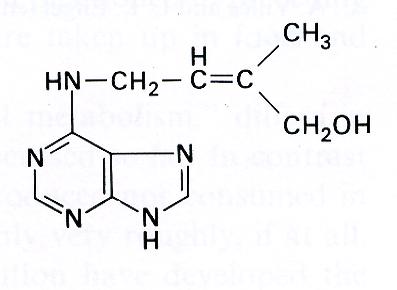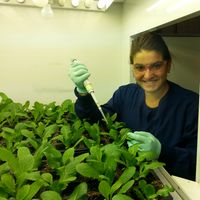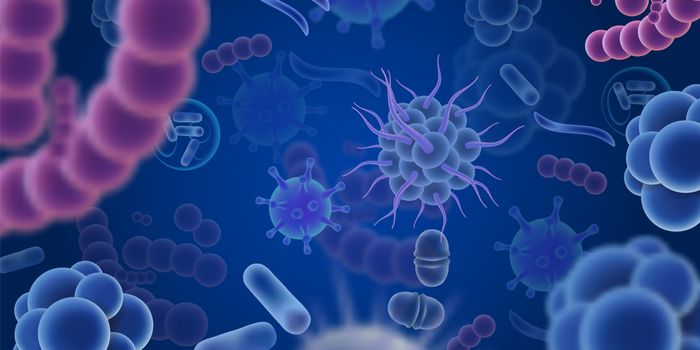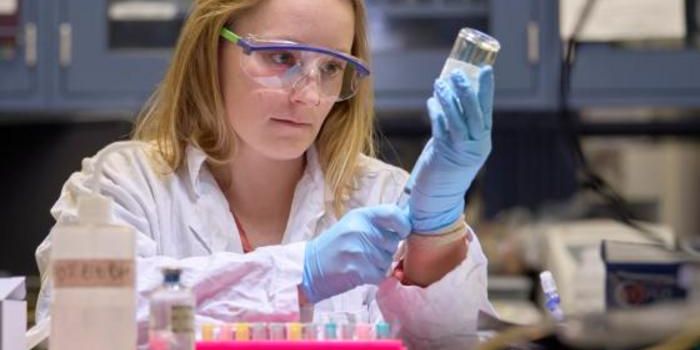Plant parasitic nematodes, such as the well-known root-knot nematode and the cyst nematode, invade plant roots near the root tip and enter the plants vascular system where they feed on the plant for several weeks. Symptoms in plants are quite dramatic and are typically associated with the formation of large “knots” or cysts. Severe infections result in reduced crop yield and deformities which decreases consumer acceptability of many vegetables. For example, carrots infected with root knot nematodes will undergo severe forking with knots forming primarily in the lateral roots.

It is not well understood how these parasites transform plant root cells into highly active feeding sites however; it is generally assumed that nematodes manipulate production and signaling of the plant hormone cytokinin. In addition, it is not known whether the hormone is secreted into host plants and its role in parasitism remains unknown. In plants, cytokinin regulates numerous developmental and physiological responses including cell division, tissue establishment, root growth, branching, senescence, seed germination and stress responses. It is hypothesized, that because knot formation in plants involves reentry of cells at some point during cell cycle, that cytokinin has a role in this aspect of pathogenesis.
Researchers from the University of Missouri as well as University of Bonn in Germany analyzed the activation of the hormone cytokinin during infection of plant model,
Arabidopsis thaliana, and the cyst nematode,
Heterodera schachtii. The researchers used interfering RNA (RNAi) to silence the
HsIPT gene in
H. schachtii, which contributes to cytokine synthesis in the parasite and inoculated it onto plants to see if it could cause infection. On plants that were infected with
HsIPT mutants, susceptibility to disease was significantly decreased. This allowed the researchers to identify
HsIPT as the gene responsible for the ability of
H. schachtii to synthesize the functional plant hormone cytokinin. Secretion of this hormone allows the parasite to manipulate the plant host system to establish a long-term parasitic interaction.
While the
IPT gene, responsible for the expression of isopentenyltransferase, has been found in other bacteria and fungi, this is the first report of the gene being found in an animal. This study provides the first genetic evidence of cytokinin synthesis by an animal that helps the parasite to induce and maintain a long-term parasitic interaction. Further investigation of this relationship may lead to future developments pesticides or biocontrol targets against root knot nematodes.
Sources:
PNAS,
American Phytopathological Society,
Science Daily










